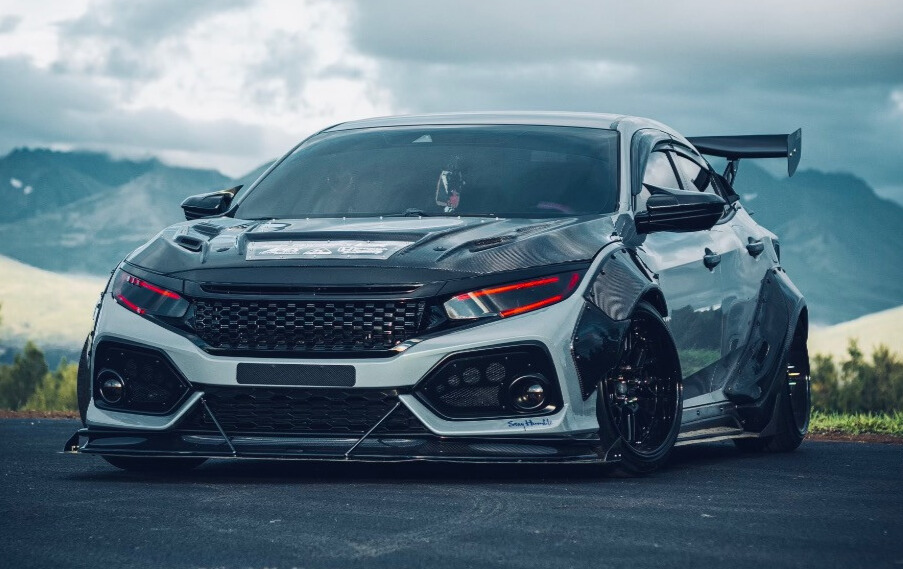Does Modifying Your Car Ruin Its Market Value?
September 16, 2024

Why Modifying Your Car Rarely Adds Value: A Hard Truth for Car Enthusiasts
Introduction
When you're young and passionate about cars, it's easy to get carried away with modifications. You buy a $3,000 Pontiac Grand Am GT and spend another $1,500 on aftermarket parts like Flowmasters, HID lights, ground wire kits, and a 10-inch Kicker subwoofer. You think these upgrades will add value to your ride, but when it comes time to sell, you're lucky to get $2,200.
Why does this happen? When you throw so much money into modding your car, why doesn't it return the same value when you go to sell it? Today, we're breaking down why mods don't always translate to a higher resale value and what you should focus on instead.

Modifications and Resale Value: The Hard Truth
The reality is that modified cars typically do not recoup the cost of the parts when sold. Unless you've managed to get a rare model at a steal, like a $3,000 240Z from a family member, you're generally going to lose money. Here's why:
- Reliability Concerns: Most people buying cars prioritize reliability. As car enthusiasts, we often throw reliability out the window in favor of fun mods—slammed suspensions, turbos, and flashy upgrades. However, these mods can lead to mechanical issues, such as air filters popping off, exhausts dragging on the ground, or aftermarket wheels causing sensor issues. For regular buyers, these modifications can be a red flag, signaling potential reliability issues down the line.
- Market Value Realities: The aftermarket car scene has a similar markup issue as any consumer market. A set of $5,000 multi-piece wheels might be a great addition to a show car, but they won't add $5,000 to the car's resale value. Most mods return around 50% of their value if you're lucky. Even well-done modifications like new wheels, tires, or an aftermarket audio deck will likely only recoup a fraction of what was spent.
- Individuality Limits Buyer Pool: Customizing your car to your unique taste can be great for your personal satisfaction, but it narrows the pool of potential buyers. Not everyone wants a sticker-bombed Miata or an all-red Alcantara interior VW GTI. The more niche your build, the fewer buyers you attract, making it harder to sell and more likely that you'll get lowball offers.

How to Maximize the Value of Your Modified Car
If you're looking to sell your modified car and want to maximize your return, consider these strategies before you list it:
- Sell Parts Separately: Instead of selling your car fully loaded with all your mods, consider breaking off parts to sell separately. For example, if you have an Evo with expensive wheels, you might sell the car without the wheels for $20,000 and then sell the wheels separately for an additional $3,500.
- Focus on Common Upgrades: Mods that tend to hold value better include high-quality wheels, new tires, aftermarket audio systems, clean interiors, and tasteful aero kits. Avoid trying to sell the car with all your personal touches that may not appeal to a broad audience.
- Keep It Simple: If possible, revert the car to a more stock-looking version when selling. Show off the car in its best light, but be ready to negotiate or remove parts that might not add value for the buyer.

Final Thoughts: Mod for Fun, Not for Profit
At the end of the day, car enthusiasts modify their cars for emotional satisfaction, not financial gain. Whether it's buying overpriced popcorn at a movie theater or spending on mods that won't increase resale value, sometimes it’s about the joy it brings. Just remember that these mods are often for your enjoyment, not an investment. If you can accept that, you'll enjoy the process much more.
And if you're in the market for aftermarket wheels, tires, or suspension, check out Fitment Industries. We offer financing, free shipping, and quick delivery on all in-stock products, so there's no reason not to build your car with us - we're happy to help you find the perfect setup for whatever you drive.






